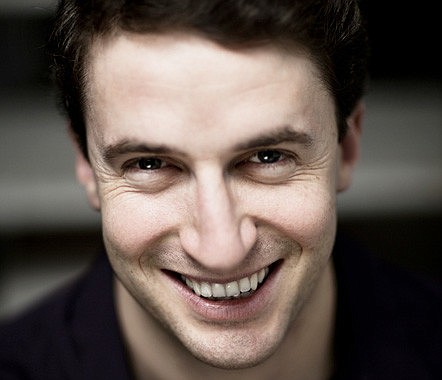- November 25, 2024
-
-
Loading

Loading

The Sarasota Music Festival closed its 50th anniversary season over the weekend with simply stunning music-making by international performers, from teenaged prodigies to world-renowned artists. Hearing the Brahms B Minor Clarinet Quintet performed by Eli Eban (principal clarinetist for the Indianapolis Chamber Orchestra), Martin Chalifour (principal concertmaster of the Los Angeles Philharmonic), Noah Bendix-Balgley (concertmaster of no less than the Berlin Philharmonic), Elizabeth Beilman (principal violist of the Sarasota Orchestra) and Desmond Hoebig (multiple award-winning cellist who now is a professor at the illustrious Shepherd School of Music at Rice), was like meeting your Brahmsian dream team. And putting Robert Levin at the piano with violinist Timothy Lees (concertmaster of the Cincinnati Symphony) and Timothy Eddy (a member of the Orion Quartet) for Beethoven’s E flat Piano Trio, Opus 70, No. 2 produced a performance that clarified Beethoven’s role in changing the face of great music.
Another extraordinary thing: Several of the international performers had, themselves, been students at the Sarasota Music Festival in the past, including Beilman — who has, in the last couple of years since she joined our orchestra, made quite a name for herself as a violist of exquisite tone and musicianship — and Bendix-Blagley — who spent three summers with the Sarasota Festival before going on to become the concertmaster of the Pittsburgh Symphony and, most recently, the newly appointed concertmaster of the Berlin Philharmonic, an ensemble in the rarified strata of greatest orchestras on Earth.
Then there were the kids who, playing excerpts from ensembles by Mozart, Martinu and Huber, like seasoned professionals, are on their way — with the help of this great international teaching festival — to becoming the superstars of tomorrow. Hailing from conservatories around the world — Juilliard, Rice, Indiana, Eastman, Cleveland, Curtis and Singapore — these disciples of the great musical traditions are dazzling in their viruosic techniques and profound understanding of the great composers; an inspiration to those of us who sat, thrilled, in the sold-out Opera House, hearing these enthusiastic dazzlers.
On Saturday, the final evening of the season, with nary an empty seat to be found, the internationally celebrated conductor, Nicholas McGegan, led the Festival Orchestra, made up of all those exceptional young musicians, in a brilliant program of major works by Brahms, Saint-Saens and Poulenc. The iconic moment came with the Brahms Symphony No. 3, with Lees serving as concertmaster and, lurking quietly in the last stand violins, the Berlin Philharmonic’s new concertmaster and former Festival student, Bendix-Balgley. One only hopes someone got a photo with a wide-angle lens that encompassed the past, present and future.
But, photo-ops aside, it was the music-making that was so supremely stunning. I’m used to my Brahms big, lush, rich and thick. McGegan, who’s obviously done a lot of research into the composer’s style, pared down the sound and came out with a Third Symphony that was as clear as a mountain brook and just as refreshing. The dense, heavy and, sometimes impenetrable Brahms of my childhood seemed to be swept away by McGegan’s faster, more slender sounds, showing us that Brahms had originally intended this work for a smaller, more chamber-like ensemble than the bulk of the philharmonics we’ve heard throughout the 20th century. Which is right? Historically, McGegan’s. Which is better? That word shouldn’t even surface while listening to music when a work is as well played and convincing as this Brahms symphony was Saturday night.
Chalifour, playing a gut-string Strad, proved why he’s been principal concertmaster in the illustrious L.A. Phil, first with Esa-Pekka Salonen, and now with Gustavo Dudamel. His performance of the Saint-Saens B minor Violin Concerto with the festival orchestra and McGegan was captivating and riveting. He joined the SMF faculty in 1993 and, from the bite of his playing to the richness of his tone, any young violinist who had the opportunity to work with him this past week came away with a whole new world of great performance standards.
The final work on the program was Poulenc’s vivacious, dancing Concerto for Two Pianos. Here, again, McGegan proved he and the Festival Orchestra were excellent accompanists, as they set a brisk tempo for the two soloists — Ya-Fei Chuang (an alumna of the festival), and her husband and the festival’s artistic director, Robert Levin.
One of the great concertos for two pianos, this was a performance that’s right up there with the gold-standard of Poulenc performances by the old duo-pianist team of Gold and Fizdale. Their performance with the New York Philharmonic is indelibly etched in my head, but the one with Chuang and Levin, with the brilliantly talented students of the festival orchestra, was as exhilarating and thrilling as any I’ve heard.
What a stupendous way to conclude the festival’s 50th anniversary season.